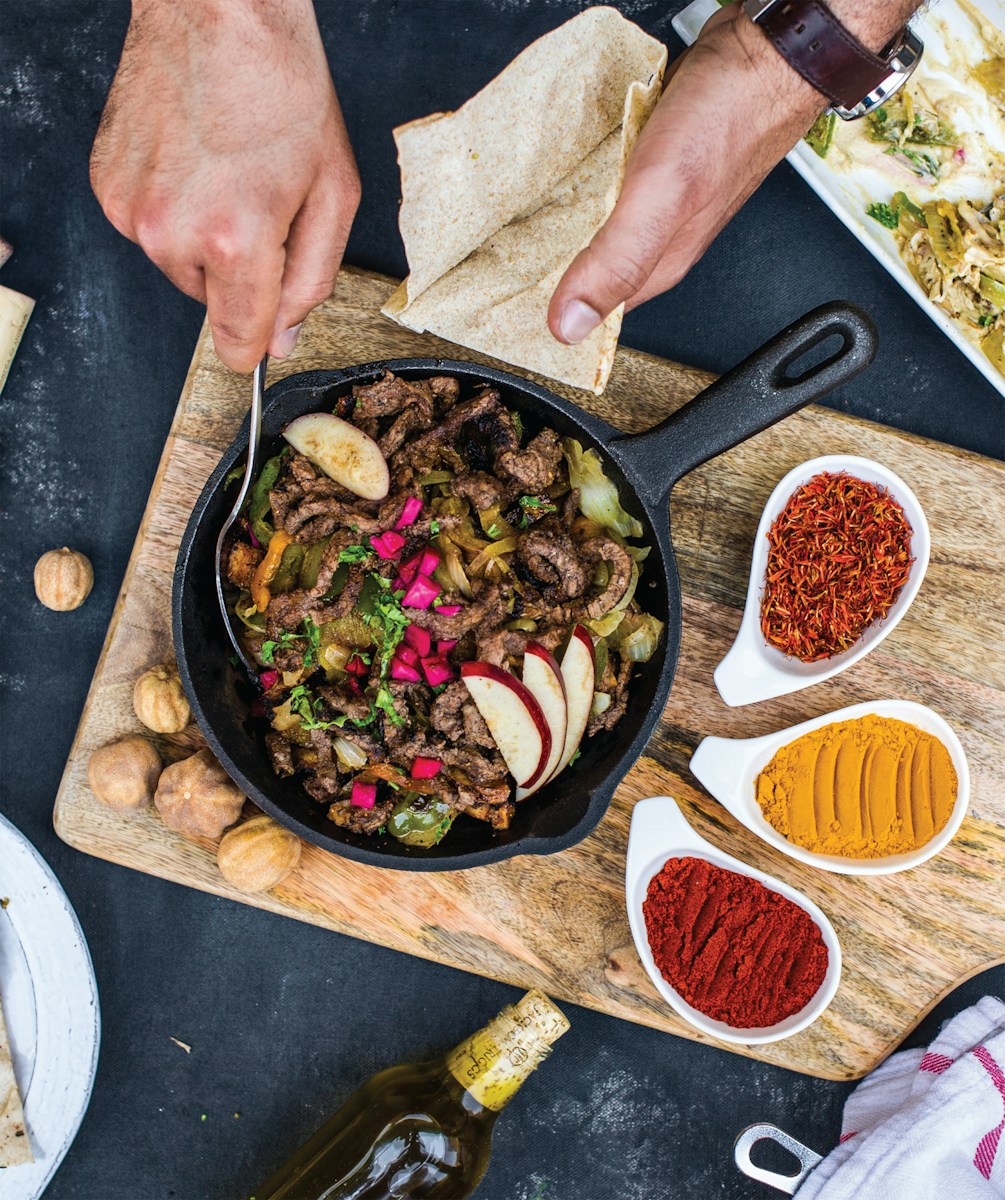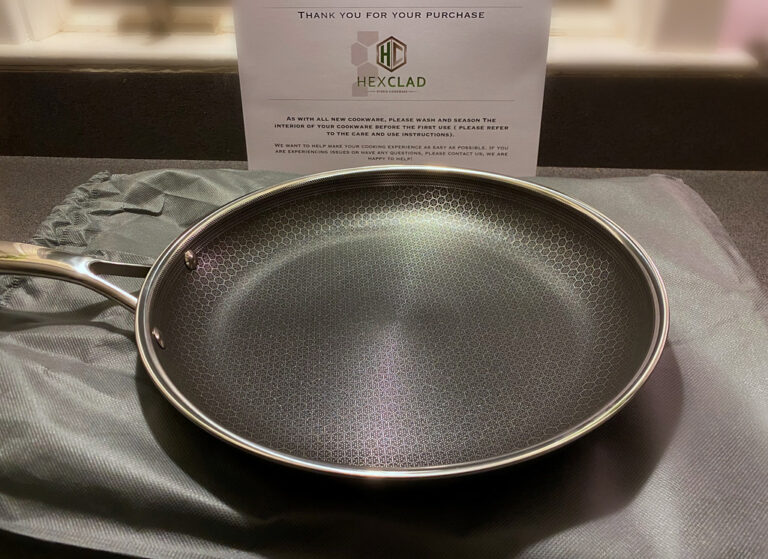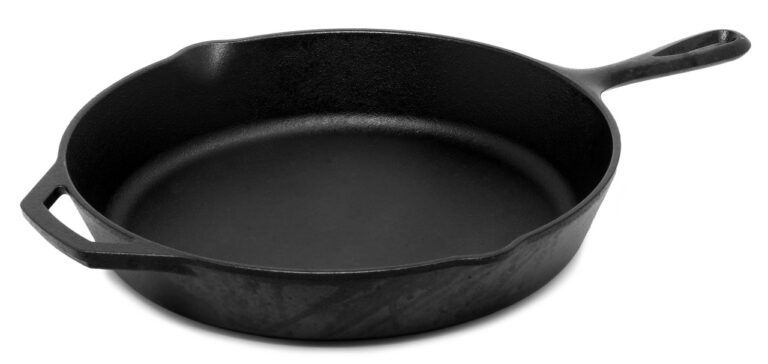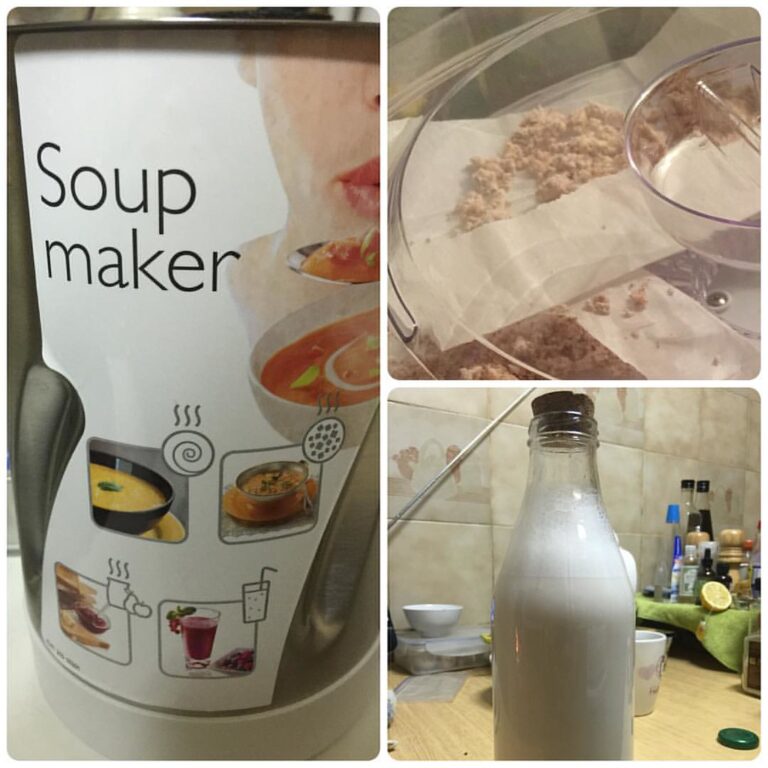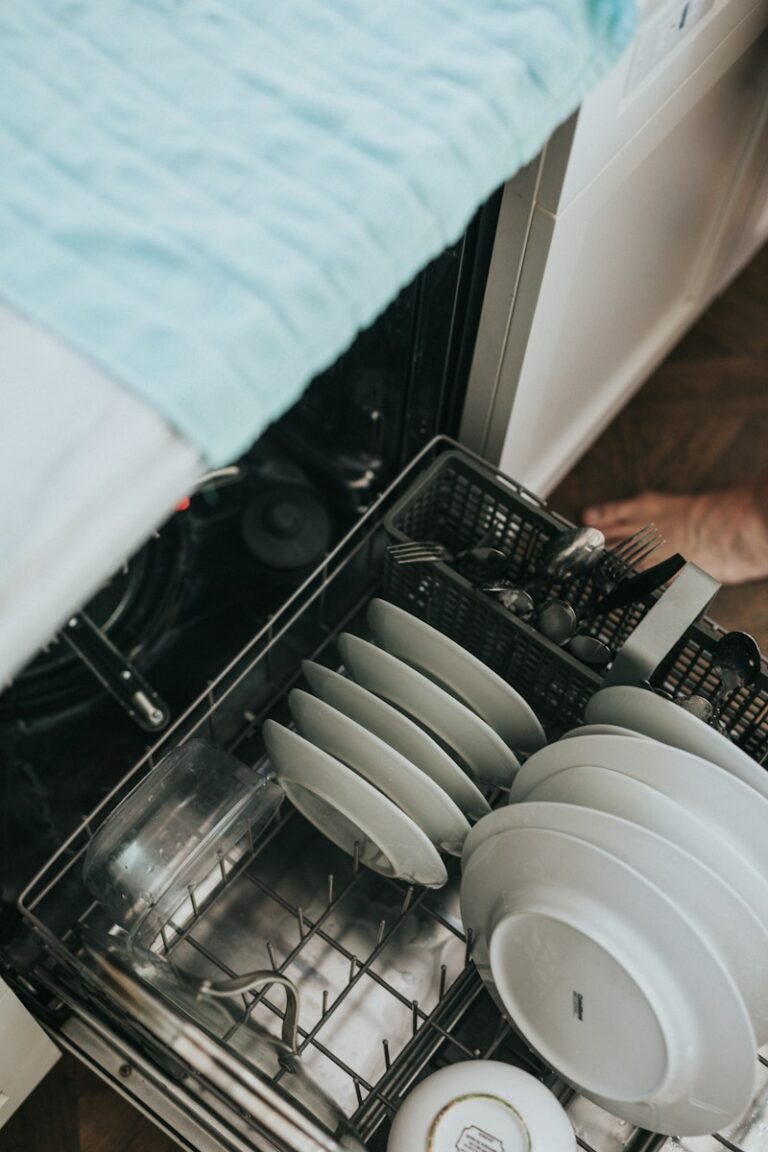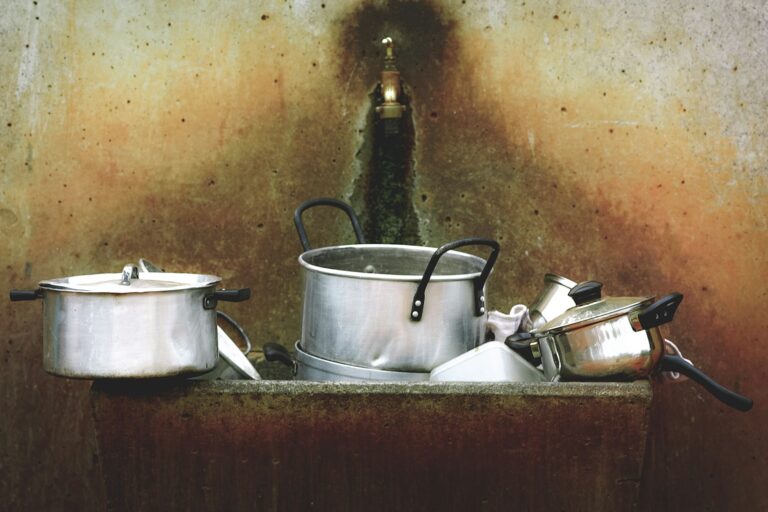Are you concerned about the potential toxicity of cast iron pans? In this article, we will explore the composition of these pans and discuss any health risks you should be aware of.
We will also debunk common myths surrounding their toxicity and provide tips for safe cooking with cast iron. By understanding how to properly season, clean, and maintain your cast iron pan, you can enjoy its benefits without compromising your well-being.
So let’s dive in and get all the facts straight!
Key Takeaways
- Cast iron pans do not leach harmful chemicals and provide dietary iron and health benefits.
- Proper maintenance is crucial to avoid potential health risks.
- Seasoning creates a natural non-stick surface and enhances flavor while preventing rust.
- Cooking with cast iron can increase nutritional value and improve heat distribution.
The Composition of Cast Iron Pans
Cast iron pans are made up of a combination of iron and carbon. When you use a cast iron pan, the heat causes the carbon to react with oxygen in the air, creating a layer called seasoning. This seasoning is what gives the pan its non-stick properties and helps prevent rusting.
The high carbon content in cast iron also makes it an excellent conductor of heat, allowing for even cooking throughout the entire pan. Additionally, this composition gives cast iron pans their durability and long lifespan.
With proper care and maintenance, your cast iron pan can last for generations, making it a worthwhile investment for any kitchen. So next time you’re cooking with your trusty cast iron pan, remember that its composition is what makes it such a versatile and reliable tool in your culinary arsenal.
Understanding Potential Health Risks
There’s a need to understand the potential health risks associated with using cast iron cookware. While cast iron pans are generally safe for cooking, it’s important to be aware of certain factors that may pose risks to your health.
Here are some things you should consider:
- Seasoning: The seasoning on a cast iron pan can contain potentially harmful substances, such as polyunsaturated fatty acids and carbonized oils.
- Iron intake: Cooking acidic foods in cast iron pans can increase the amount of iron leached into your food, which may be problematic for individuals with hemochromatosis or other conditions.
- Allergies: Some people may have allergies or sensitivities to certain materials used in the production of cast iron cookware.
- Maintenance: Proper care and maintenance is crucial to prevent rust and maintain the integrity of the cookware.
- Temperature control: Cast iron pans heat up slowly but retain heat well, so it’s important to use caution when handling them to avoid burns.
Exploring the Impact of Seasoning
When it comes to seasoning your food, there are important considerations to keep in mind regarding food safety.
Proper seasoning not only enhances the flavor of your dishes, but it can also play a crucial role in preventing foodborne illnesses.
Understanding the benefits of proper seasoning will not only ensure that your meals taste delicious, but also help you maintain a safe and healthy kitchen environment.
Seasoning and Food Safety
To ensure food safety, make sure you properly season your cast iron pan before using it. Seasoning not only enhances the flavor of your food but also forms a protective layer on the surface of the pan, preventing rust and making it easier to clean. Here are some tips to help you achieve a perfectly seasoned cast iron pan:
- Scrub with hot soapy water: Remove any dirt or manufacturing residue from your new pan.
- Dry thoroughly: Make sure there is no moisture left on the surface before proceeding to seasoning.
- Apply a thin layer of oil: Use an oil with a high smoke point, like vegetable or flaxseed oil.
- Bake in the oven: Place your oiled pan upside down in a preheated oven and bake for an hour.
- Repeat the process: For best results, repeat this seasoning process multiple times until your cast iron develops a smooth black patina.
Benefits of Proper Seasoning
Properly seasoning your cast iron pan enhances its flavor and creates a protective layer that prevents rust. When you season your pan, you are essentially creating a natural non-stick surface that improves with use.
This means that as you continue to cook with your cast iron pan, the seasoning will become even better and more effective. The benefits of proper seasoning go beyond just the taste and texture of your food.
Seasoning also helps to prevent your pan from rusting by forming a barrier between the metal surface and moisture in the air. Additionally, a well-seasoned cast iron pan is easier to clean because it becomes naturally non-stick, reducing the need for excessive scrubbing or harsh cleaning agents.
Debunking Myths About Toxicity
You may have heard rumors about cast iron pans being toxic, but let’s debunk those myths. The truth is, cast iron pans are completely safe and even offer health benefits.
Here are five reasons why you can confidently use your cast iron cookware:
- Cast iron pans do not leach harmful chemicals into your food.
- They provide an excellent source of dietary iron, which is important for maintaining healthy blood levels.
- Unlike non-stick pans that release toxic fumes when overheated, cast iron pans can withstand high temperatures without any risk to your health.
- Properly seasoned cast iron pans create a natural non-stick surface without the need for chemical coatings.
- Cooking with cast iron can actually increase the nutritional value of certain foods, such as adding more iron to your meals.
Cast Iron Pans and Food Safety
Don’t believe the rumors – cooking with a seasoned cast iron pan is completely safe for your food. Contrary to popular belief, cast iron pans are not toxic and can actually enhance the flavor of your dishes.
The concern surrounding the safety of cast iron pans stems from the fear of ingesting excessive amounts of iron. However, studies have shown that only trace amounts of iron are transferred to the food during cooking, which is actually beneficial for individuals who are at risk of iron deficiency.
Additionally, cooking with a well-seasoned cast iron pan creates a natural non-stick surface that eliminates the need for chemical coatings found in other types of cookware.
The Role of Iron in Cooking
Contrary to popular belief, using a seasoned cast iron pan can actually enhance the flavor of your dishes due to its iron content. So, next time you’re hesitant about cooking with a cast iron pan, think again!
Here are five reasons why cooking with an iron-rich pan can take your culinary game to the next level:
- Improved heat distribution: Cast iron pans retain and distribute heat evenly, resulting in perfectly cooked food every time.
- Non-stick surface: With proper seasoning, your cast iron pan becomes naturally non-stick, making it easier to cook and clean up afterwards.
- Durability: These pans are built to last for generations. You won’t have to worry about replacing them anytime soon!
- Versatility: From stovetop cooking to oven baking, a cast iron pan can handle it all.
- Added nutritional value: Cooking in a cast iron pan can increase the amount of dietary iron in your food, which is essential for maintaining good health.
Examining Chemical Reactions
When examining chemical reactions, it’s important to consider the various elements and compounds involved. You need to understand how different substances interact with each other to create new compounds or release energy.
Chemical reactions involve the breaking and forming of bonds between atoms, resulting in a rearrangement of their structure. For example, when you heat water, it undergoes a chemical reaction called vaporization where its molecules gain enough energy to break apart from one another and form water vapor.
Similarly, when you mix baking soda with vinegar, they react to produce carbon dioxide gas, which causes bubbles and fizzing.
Proper Cleaning and Maintenance
When it comes to taking care of your cast iron pan, there are a few key points you should keep in mind.
First, you’ll want to avoid rust and corrosion by properly drying your pan after each use and storing it in a dry place.
Next, removing burnt-on residues can be easily done by scrubbing with a mild abrasive or using salt as a natural cleaner.
Avoiding Rust and Corrosion
To avoid rust and corrosion, it’s important to properly season and care for your cast iron pan. Here are a few tips to help keep your pan in great shape:
- Dry it thoroughly: After washing your pan, make sure to dry it completely. Leaving any moisture behind can lead to rust.
- Season regularly: Seasoning is the process of adding oil to the surface of your cast iron pan to create a protective layer. Regularly seasoning helps prevent rust and keeps your pan non-stick.
- Avoid soaking: While it’s essential to clean your cast iron pan, avoid soaking it for long periods as this can cause rust.
- Store properly: Store your cast iron pan in a dry place with enough ventilation. Avoid stacking other pans on top of it as this can damage the seasoning.
- Use gentle cleaning methods: Avoid using harsh detergents or abrasive scrubbers on your cast iron pan. Instead, opt for mild soap and a soft sponge.
Removing Burnt-On Residues
Regularly cleaning your cast iron pan with gentle methods and avoiding harsh detergents will help remove any burnt-on residues.
One effective method is using a mixture of coarse salt and oil to scrub away the stuck-on food. Simply sprinkle a generous amount of salt onto the surface of the pan, then use a paper towel or cloth to rub it in circular motions. The abrasive nature of the salt helps to loosen and lift the residues without damaging the seasoning layer.
Another option is to create a paste using baking soda and water, then apply it to the affected areas with a sponge or brush. Allow it to sit for a few minutes before scrubbing and rinsing thoroughly.
With regular maintenance and these simple cleaning techniques, you can keep your cast iron pan free from burnt-on residues and prolong its lifespan.
Seasoning for Nonstick Surface
Creating a nonstick surface on your cast iron pan is achievable with the right seasoning technique. Here are some tips to help you achieve that perfect nonstick surface:
- Start with a clean and dry cast iron pan.
- Apply a thin layer of vegetable oil or flaxseed oil all over the pan, including the handle.
- Place the pan upside down in a preheated oven at 400°F for one hour.
- Allow the pan to cool completely before removing it from the oven.
- Repeat this process two to three more times for best results.
By following these simple steps, you can transform your cast iron pan into a nonstick cooking essential.
Enjoy hassle-free cooking and easy cleanup without compromising on taste or health benefits.
Comparing Cast Iron to Other Cookware
Did you know that cast iron pans have a unique ability to retain and distribute heat evenly, unlike other cookware? This is due to their dense construction and excellent heat retention properties.
When you cook with a cast iron pan, the heat spreads evenly across the surface, ensuring that your food cooks consistently. Other types of cookware, like stainless steel or nonstick pans, may have hot spots that can cause uneven cooking.
Cast iron pans also have the added benefit of being able to withstand high temperatures without warping or melting. So whether you’re searing a steak or baking cornbread, cast iron is the way to go for even heating and reliable performance in the kitchen.
Risks of Using Damaged or Poorly Seasoned Pans
Using damaged or poorly seasoned pans can lead to uneven cooking and potentially ruin your dishes. It’s important to take care of your cookware to ensure the best results in the kitchen. Here are some risks you should be aware of:
- Uneven heating: Damaged pans may have hot spots, causing certain areas of your food to cook faster than others.
- Food sticking: If your pan is not properly seasoned, food can stick to the surface, making it difficult to flip or remove without damaging it.
- Leaching of harmful substances: Non-stick coatings on damaged pans can release toxic chemicals into your food when heated.
- Poor heat distribution: Pans with dents or warps may not distribute heat evenly, resulting in undercooked or overcooked meals.
- Reduced lifespan: Using damaged cookware regularly can shorten its lifespan and require more frequent replacements.
Tips for Safe and Healthy Cooking With Cast Iron
When it comes to cooking with cast iron, there are a few key points to keep in mind for seasoning and maintenance.
First, make sure to properly season your pan before using it, as this will create a non-stick surface and prevent rusting.
Additionally, remember to choose the right oil for cooking with cast iron, as certain oils can withstand high heat better than others.
Seasoning and Maintenance Tips
To keep your cast iron pan in great condition, it’s important to properly season and maintain it. Here are some tips to help you take care of your beloved cast iron pan:
- Start by seasoning the pan before using it for the first time. This will create a protective layer that prevents rust and makes it non-stick.
- Avoid using soap when cleaning your cast iron pan. Instead, use hot water and a stiff brush to remove any residue.
- Dry the pan thoroughly after washing to prevent rusting. You can even place it on low heat for a few minutes to ensure all moisture is gone.
- Apply a thin layer of oil after each use to maintain the seasoning. This will also prevent food from sticking.
- Store your cast iron pan in a dry place with good air circulation to avoid moisture buildup.
Choosing the Right Oil
For the best results, you’ll want to choose an oil that has a high smoke point when seasoning your cast iron pan.
When it comes to selecting the right oil, there are a few factors to consider. First and foremost, you’ll want to ensure that the oil you use can withstand high temperatures without breaking down or producing harmful fumes.
Oils with low smoke points, like olive oil or butter, are not ideal for this purpose as they can burn easily and leave behind a sticky residue on your pan.
Instead, opt for oils such as vegetable oil, canola oil, or flaxseed oil which have higher smoke points and will create a durable and non-stick seasoning layer on your cast iron pan.
Conclusion
In conclusion, cast iron pans are a safe and healthy choice for cooking. They are made of a durable and non-toxic material that can withstand high heat without releasing harmful chemicals.
With proper seasoning and maintenance, cast iron pans can develop a natural non-stick surface that enhances the flavor of your food.
By following simple cleaning and care instructions, you can enjoy the benefits of using cast iron pans while minimizing any potential risks.
So go ahead and cook with confidence knowing that your cast iron pan is not toxic!
